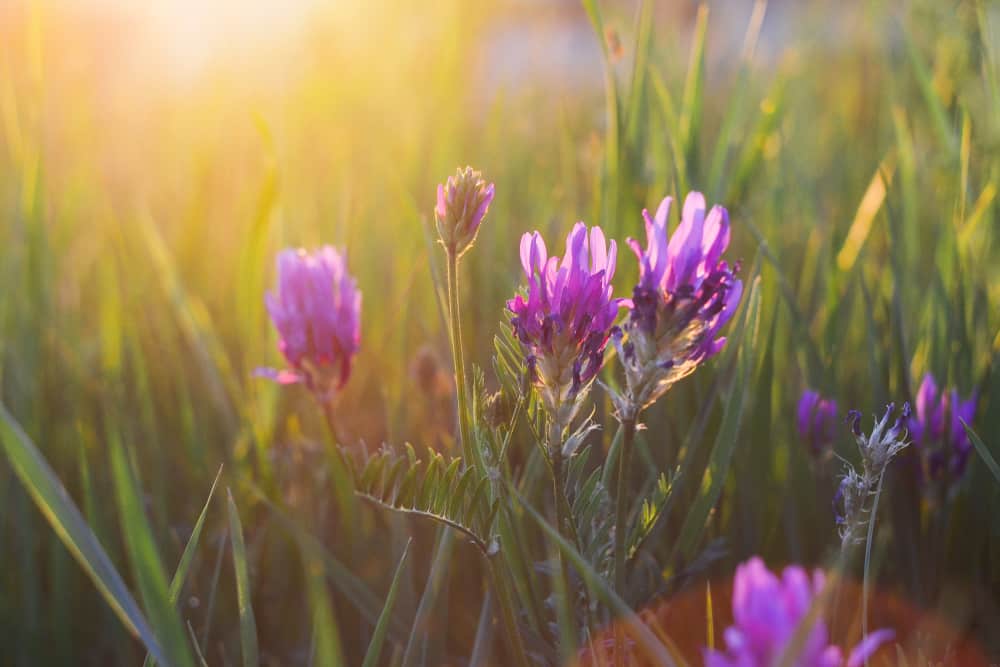Green funerals cost less money and are friendlier to the environment. More people today have commented that they are unhappy with the way the funeral industry has convinced people that a traditional funeral is the only proper way to deal with a death. You know the kind of funeral service they mean, usually involves purchasing an expensive casket, buying a grave plot, having several large vehicles taxi the relatives to and from the cemetery and most importantly, will cost you and your family thousands of dollars. In fact, in a recent survey, 50% of respondents claimed they would prefer a green, or natural, funeral.
Does spending a fortune on a funeral service really honor the deceased?Is it really dignified to pay as much for a funeral casket as you could pay for a new car? Is chemical embalming a dead body in anyway natural or dignified?
The ‘Natural’ Alternative
Although there are many different types of burials and burial sites, green funerals and green burial sites tend to look more like nature parks or conservation reserves. Metal caskets and embalming are not permitted and the preference is for natural, biodegradable burial containers. A simple wooden casket, linen shroud, a woolen casket or organic cardboard caskets are used.
Some green burial sites plant trees as opposed to using grave markers and headstones making the whole process a much more natural form of burial. Today’s modern cemeteries can hardly be described as natural resting places when they are burying metal caskets, with bodies full of embalming fluids that over time will contaminate all the surrounding areas with known carcinogenic toxic chemicals.
According to “The Green Burial Council” enough metal is buried in the US to build a whole new Golden Gates bridge every year not to mention the amount of concrete being used to house these metal caskets. Even cremation is viewed today as a much more eco-friendly method than a standard burial even though cremations require huge amounts of natural gas and electricity.
Is a green or natural burial cheaper than a traditional burial?
Without a doubt you can save thousands of dollars by opting for a green burial. With regards to the overall costs, a traditional burial service including elaborate caskets with all the trimmings can top $10,000 in comparison, a green funeral can cost under $2000.
Funerals: Is Green the new Black?
The generation of ‘Baby-Boomers’, who are likely to generate an influx in the death rate in the next decade, are exhibiting greater interest in ‘naturalization’ and are far more likely to consider a ‘green’ funeral. Recent research and statistics on funerals indicates that a growing trend in alternative funerals is a lean towards more environmentally friendly or ‘natural’ funerals.
A Green funeral is one in which no chemicals are used for preservation, and natural wood is used for a casket as opposed to steel. Wooden caskets are placed direct into the earth instead of using concrete crypts and vaults. It is considered a more natural decaying process. In someways it is but a return to the natural way that burial occurred in North America centuries ago.
A Natural Burial Performed by the Family
Some people are taking the whole ‘natural’ funeral theme a step further and choosing to have a memorial service and wake at home, rather than opting for the traditional funeral memorial service. These DIY funerals are often so simple that a plain wooden casket is made by someone in the family, the deceased is washed and dressed and placed in the casket, and then a memorial tribute is conducted. Family and friends attending the wake write messages on the casket and place flowers on top. The casket is then transported to a designated ‘green’ cemetery for burial, or to a crematorium.

The more ecologically-friendly Cremation Option
Opting to be cremated is also on the increase, and this again reflects these changing cultural trends in the death industry. Many families are choosing a simple cremation, and then scattering the ashes, as a more organic return to nature. Although this trend in naturalization is likely influenced by cultural environment agendas, cost is most likely the primary factor. For many decades now the Funeral Industry has profiteered from the traditional extravagant burial as the preferred and befitting option for a ‘dignified’ end-of-life choice. Now society is resisting this as the ‘norm’ and the Funeral Industry is re-shaping itself to cater to this trend.
Cemetery Space in the 21st Century
Many funeral corporations and businesses are having to rethink their cemeteries. With the sale of traditional burial vaults on the decline, cemeteries are now creating memorial gardens with landscaped waterfalls, and reflective tranquil areas where ashes can be scattered or interred, and memorial benches can be erected. We are even seeing themed cemeteries emerge, such as the Golf Park in Washington.
New businesses are emerging as the death industry reshapes itself. The commodification of the death industry has resulted in a proliferation of memorial businesses, all using the Internet to promote their services. You can now have a loved one’s ashes converted into a carbon diamond, blasted into space, scattered at sea, or planted with a memorial tree. Caskets, urns, and grave markers can all now be purchased online, frequently with savings compared to the prices funeral homes may charge.
The notion of opting for a green funeral may be an environmental, cost or nostalgic choice. Whatever the reason, it is likely that we will see more and more green funerals being conducted.
Related Articles:
- DIY Funeral Care: Family-directed Funerals
- Aquamation or Resomation: A ‘Green’ Alternative to the traditional Funeral
- Green Caskets
- Ash Scattering
Resources:

